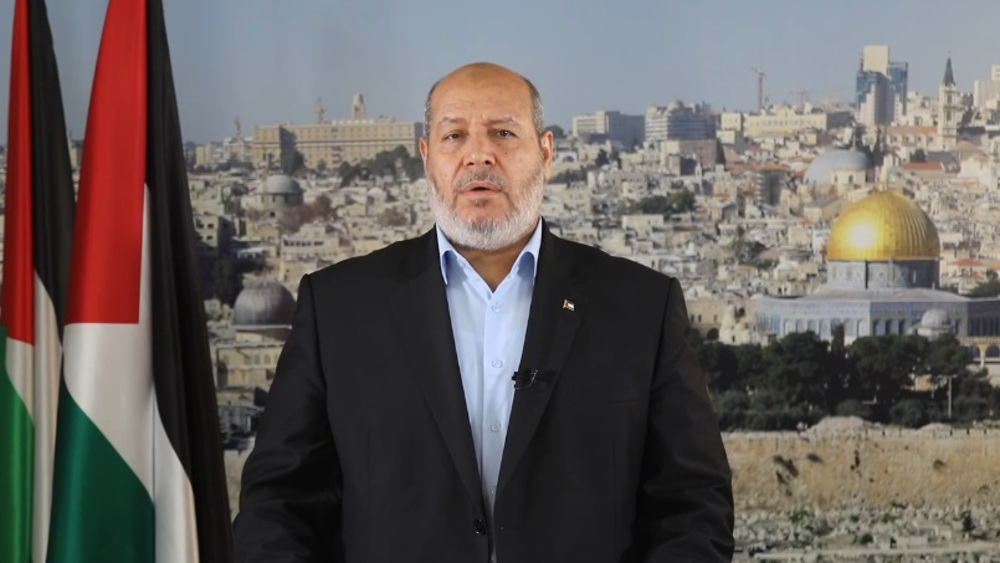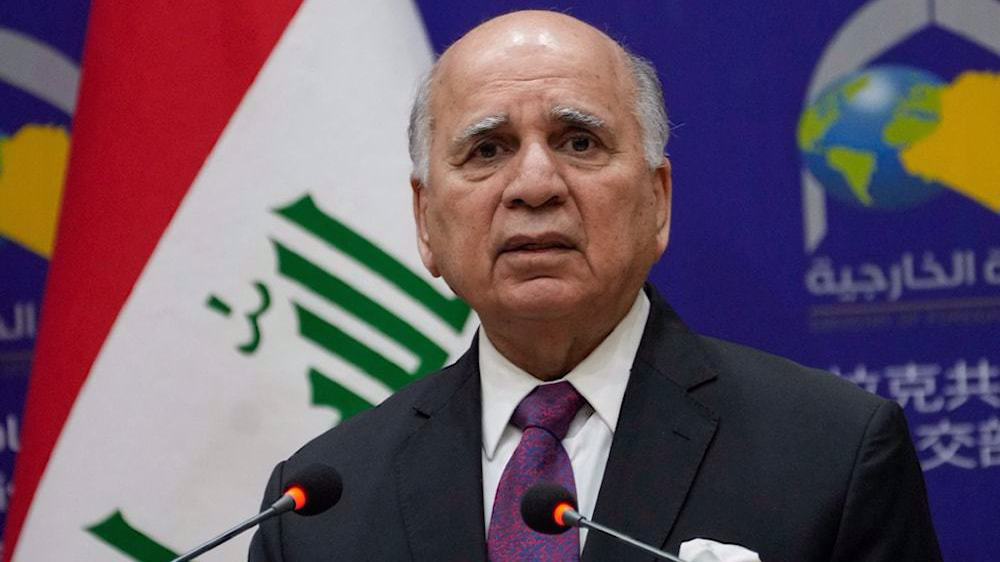Iraqi parliament demands troops be deployed to areas disputed with Kurds
Iraqi lawmakers have demanded deployment of government troops to areas disputed with Kurds amid rising tensions between the central government in Baghdad and the Kurdistan Regional Government over a controversial independence referendum.
Hakim Abbas Mousa Abbas al-Zamili, a legislator from the Sadrist Movement, said on Monday that the parliament had approved several tough measures in response to the contentious Kurdish independence vote.
He added that in line with these measures, Baghdad would have to act to “protect Iraq's unity and to deploy troops in all [disputed] areas.”
Zamili further stated that the measures also called for the closure of all border crossings with the Kurdish region.
The Iraqi parliament considers the Kurdish independence referendum as “unconstitutional” and has called for punitive measures against all Kurdish officials and civil servants involved in it, the Iraqi lawmaker pointed out.
Kurdish referendum “declaration of war on Iraq's unity”
In a related development, Iraq’s Vice President Nouri al-Maliki has called for a referendum on the unity of the entire Iraq, stressing that the Israeli-backed plot to partition Iraq had failed.
“All confirm the unconstitutionality of the referendum [for independence of the Iraqi Kurdistan Region], because it is clearly aimed at [undermining] the unity of Iraq. This vote would have serious repercussions for the future of Iraq in general and Kurdish region in particular,” Maliki said in the capital Baghdad on Monday.
The Iraqi vice president also called on the central government in Baghdad to take legal actions against all those who support the Kurdish separation vote, stating that the policies adopted by Massoud Barzani, the president of the Kurdistan Regional Government, were meant to tear Iraq apart.
“The positions of Iraq's neighboring countries have been firm and clear concerning this illegal action,” Maliki said, urging those countries “to boycott the Kurdistan region politically and economically and stop security cooperation with it.”
Maliki had already denounced the Kurdish independence referendum in a meeting with US Ambassador to Iraq, Douglas Silliman, on September 17, warning that Baghdad would not tolerate the establishment of “a second Israel,”
Washington has already expressed its opposition to the referendum, arguing that it would weaken the Arab-Kurdish joint military operations that have managed to make Daesh Takfiri terrorist group retreat in both Iraq and neighboring Syria.
The White House has also warned that holding the vote in “disputed areas” would be “provocative and destabilizing,” urging leaders of the Kurdistan region to call off the referendum and begin serious and sustained negotiations with Baghdad.
On Sunday, Iraqi Prime Minister Haider al-Abadi said Baghdad would not allow the creation of an “ethnic government” in the Arab country.
Abadi also vowed that the Iraqi leaders would not allow the Arab country to return to “dark times” of the past, promising that he would also take the “necessary measures” to protect the unity of Iraq.
Also on Sunday, Iraq's central government called on the world countries not to purchase oil from the semi-autonomous Kurdish region.
According to a statement released by Iraqi Prime Minister Haider al-Abadi’s office, the government also asked the Kurdish region to hand over control of international border posts and its international airports.
Abadi orders police to protect “citizens being coerced”
In a relevant development, Iraqi Prime Minister Haider al-Abadi ordered members of Iraq’s Federal Police Force “to protect citizens being threatened and coerced” in the semi-autonomous Kurdish region.
The development came after Syrian Foreign Minister Walid al-Muallem said on Sunday that the Damascus government did not recognize the Kurdish referendum, denouncing any measure that could break up neighboring Iraq.

Meanwhile, Turkish President Recep Tayyip Erdogan has threatened a military intervention in Iraq in response to the Kurdish vote.
“Our military is not (at the border) for nothing. We could arrive suddenly one night,” Erdogan said.
The Turkish president added that his country would take political, economic as well as military measures against KRG’s independence from Baghdad government.

“Let's see where and through which channels they will sell their oil. We have the valve. The moment we shut the valve, that's the end of it,” he said.
Earlier on Monday, Iranian Foreign Ministry spokesman, Bahram Qassemi, had told reporters that the Kurdish independence vote could “lead to developments and happenings that could affect all people of the region and especially Kurdish people.”
Qasemi reiterated that Iran supported the "territorial integrity and democratic process" in Iraq.
UNRWA unraveled amid Israel's allegations, reduced intl. support
Palestinian journalist, a Sobh Media Festival awardee, killed in Gaza hours before truce
Jan. 15: ‘Axis of Resistance’ operations against Israeli occupation
VIDEO | US fires: Criticism mounts over govt. failure to respond
VIDEO | Fears, hope in Gaza amid intensified ceasefire efforts
VIDEO | Press TV's news headlines
Hamas: Ceasefire agreement result of steadfastness, resistance in Gaza over 15 months
Hamas thanks Iran, Resistance Front following achievement of ceasefire in Gaza























 This makes it easy to access the Press TV website
This makes it easy to access the Press TV website